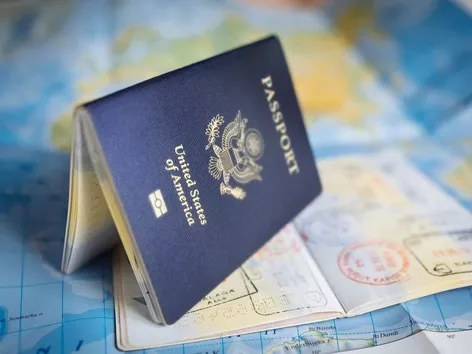Work in New Zealand in 2025: everything you need to know about the country's simplified migration policy
Table of contents
-
Changes to New Zealand’s foreign employment process in 2025
- 1. Average salary requirement removed
- 2. Income threshold introduced for migrants with dependents
- 3. Work experience requirements reduced
- 4. New visas for seasonal workers
- 5. Visa validity extended for lower-skilled jobs
- 6. Recruiting local talent
- 7. Extended temporary work rights for expats
- 8. Simplified employer requirements
- 9. Domestic labour requirement reduced for certain positions
- 10. Simplifying the immigration process

New Zealand is actively fighting the problem of labor shortage and simplifying visa legislation. In 2025, the country entered into force key changes related to the abolition of the salary threshold, as well as the reduction of a number of requirements for employees. Find out how the new rules have made it easier to find a job in New Zealand
New Zealand is facing a shortage of skilled workers, which has forced the government to make significant changes to its migration laws. Here’s everything foreign nationals, including those from Cameroon, Kenya and Myanmar, need to know about New Zealand’s immigration policy easing in 2025.
Changes to New Zealand’s foreign employment process in 2025
1. Average salary requirement removed
The minimum salary requirement for Accredited Employer Work Visas (AEWV) and Specialist Work Visas (SPWV) will be removed from March 2025. However, employers are still required to advertise vacancies and offer salaries that reflect the market rate for the position and location. This change gives companies the freedom to do so while still ensuring that workers are paid fairly.
It is also important to note that this change does not affect existing employment contracts and salary criteria for residence visas.
2. Income threshold introduced for migrants with dependents
If an expat AEWV visa holder wishes to move to New Zealand with their children, they will now need to earn at least NZ$55,844 per year. This minimum threshold has remained unchanged since 2019 and is designed to ensure that migrant families can financially support themselves while living in the country.
3. Work experience requirements reduced
The minimum work experience requirement for migrants, which was previously three years, has been reduced to two years to alleviate the acute labour shortage. This change will make it easier for skilled workers to find work in New Zealand and meet the requirements for their jobs.
4. New visas for seasonal workers
To meet the demand for seasonal workers, New Zealand has introduced two new pathways:
- A three-year multiple-entry visa for experienced seasonal workers.
- A seven-month single-entry visa for lower-skilled workers.
Important! Current temporary seasonal worker programs will continue to operate until the new system is fully implemented.
To move, travel or work safely in a new country, you will need health insurance. You can apply for an extended policy on our website here.
5. Visa validity extended for lower-skilled jobs
The New Zealand government has extended visa validity to three years for jobs classified as skill level 4 or 5 under the Australian and New Zealand Standard Classification of Occupations (ANZSCO).
Previously, holders of this permit were granted visas for two years with the possibility of a one-year extension.
Workers currently on two-year visas can apply for a one-year extension if they meet the requirements.
6. Recruiting local talent
Employers are no longer required to comply with the 21-day Work and Income mandatory recruitment period when advertising vacancies for skill level 4 or 5. Instead, they need only advertise the vacancies and interview qualified candidates to demonstrate efforts to recruit locally.
7. Extended temporary work rights for expats
From April 2025, AEWV applicants who are transferring from a work visa, any other permit type or a student visa with work privileges will be granted temporary work rights. This ensures that migrants can remain in employment while waiting for visa approval.
8. Simplified employer requirements
From 27 January 2025, changes will also come into effect for accredited employers who are recognised as seasonal employers (RSEs). This category of businesses will no longer be required to complete Employment New Zealand’s online training modules. Instead, Immigration New Zealand will provide easily accessible resources on employment rights and responsibilities.
9. Domestic labour requirement reduced for certain positions
To address the construction labour shortage, the domestic labour requirement for employers in certain construction sectors will be reduced from 35% to 15%. This change will make it easier to fill the labour shortage in this critical sector.
10. Simplifying the immigration process
The New Zealand Government is also simplifying the immigration process by reviewing the employment verification process, reducing processing times and simplifying work and income requirements. In particular, Immigration New Zealand (INZ) is streamlining the employment verification process to reduce processing times for low-risk employers.
INZ has also made significant progress in reducing the processing time for employer accreditation requests, with the average time reduced from 62 days to 14 days.
These changes to immigration law are aimed not only at creating more flexibility for skilled workers, but also at simplifying the process for employers. New Zealand hopes that the approved changes will solve the problem of labor shortages.
Let's remind you! New Zealand is recognized as one of the best countries in the world to live and work. We have already told you how a foreigner can find a job in New Zealand, what types of work visas are available to an expat, and what is important to know when moving to this country in 2025.
Igor Usyk - Head of Migration department at VisitWorld
To ensure a safe move to a new country, I advise you to consult a specialist. My colleagues, qualified specialists with a legal education, will help you avoid unpleasant situations during migration.
Products from Visit World for a comfortable trip:
Checklist for obtaining a visa and necessary documents in New Zealand;
Legal advice on immigration to New Zealand;
Travel insurance for foreigners in New Zealand;
Medical insurance all over the world.
We monitor the accuracy and relevance of our information, so if you notice any errors or inconsistencies, please contact our hotline.
Frequantly
asked questions
What is the new seasonal work visa for New Zealand 2025?
What is the New Zealand Visa 2025?
What is the age limit for a New Zealand work visa?
Recommended articles
2 min
Employment
In 2024, New Zealand introduced a number of important changes to visa and migration policies. Find out what these changes are, what categories of permits are affected by the innovation and who should be prepared for the new rules
04 Sep. 2024
More details1 min
Work
New Zealand has implemented new changes to the Migrant Exploitation Protection (MEVP) work visa. They will start working as early as October 31, 2024. Find out what's about to change for expats
23 Oct. 2024
More details2 min
Work
New Skills in Demand visa in Australia: how to get an Australian residence permit in 2025?
In December 2024, Australia announced the introduction of a new Skills in Demand visa - a special permit that simplifies the movement of skilled professionals to the country. Learn about the main conditions and current requirements for obtaining a permanent residence permit in Australia
12 Dec. 2024
More details1 min
Work
Skilled Independent Visa in Australia: requirements, benefits, popular vacancies and how to apply
The Skilled Independent Visa (subclass 189) is the easiest route to permanent residence in Australia for skilled workers, offering flexibility and independence as it does not require sponsorship from an employer or state government. Find out what the visa requirements are and who can apply for PR in Australia
31 Aug. 2025
More detailsAll materials and articles are owned by VisitWorld.Today and are protected by international intellectual property regulations. When using materials, approval from VisitWorld.Today is required.
